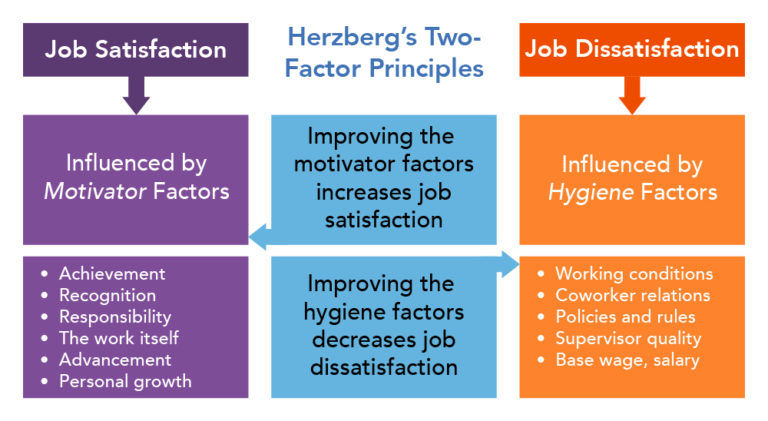Extrinsic and Intrinsic Motivation

Source: Herzberg’s Two-Factor Theory
What Is Extrinsic Motivation?
Hygiene factors aka extrinsic motivators
Extrinsic motivation is when we are motivated to perform a behavior or engage in an activity because we want to earn a reward or avoid punishment.1 You will engage in behavior not because you enjoy it or because you find it satisfying, but because you expect to get something in return or avoid something unpleasant.
Future reading: Understanding Extrinsic Motivation
- Playing crypto game because you want to earn money
- Participating in a sport to win awards
- Cleaning your room to avoid being reprimanded by your parents
- Studying because you want to get a good grade
What Is Intrinsic Motivation?
Motivation factors aka intrinsic motivators
Intrinsic motivation is when you engage in a behavior because you find it rewarding. You are performing an activity for its own sake rather than from the desire for some external reward. The behavior itself is its own reward.2
What Does Intrinsic Motivation Mean?
- Playing crypto game because you think that is fun to play
- Participating in a sport because you find the activity enjoyable
- Cleaning your room to avoid being reprimanded by your parents
- Studying a subject you find fascinating
Extrinsic vs. Intrinsic Motivation
Extrinsic motivation arises from outside of the individual while intrinsic motivation comes from within. Research has shown that each type has a different effect on human behavior.3
Studies have demonstrated that offering excessive external rewards for an already internally rewarding behavior can reduce intrinsic motivation---a phenomenon known as the overjustification effect.
For example, in a 2008 study, children who were rewarded for playing with a toy they had already expressed interest in playing with became less interested in the item after being externally rewarded.4
This is not to suggest that extrinsic motivation is a bad thing---it can be beneficial in some situations. For example, extrinsic motivation can be particularly helpful when a person needs to complete a task that they find unpleasant.
When to Use External Rewards
- Be a source of feedback to let people know when their performance has achieved a standard that is deserving of reinforcement
- Induce interest and participation in an activity an individual was not initially interested in
- Motivate people to acquire new skills or knowledge (once these early skills have been learned, people might become more intrinsically motivated to pursue an activity)
When Not to Use External Rewards
- An individual already finds the activity intrinsically rewarding
- Offering a reward might make a "play" activity seem more like "work"
What will happen when using extrinsic motivation
Most people assume that intrinsic motivation is best, but it is not always possible in every situation. Sometimes a person simply has no internal desire to engage in an activity. Offering excessive rewards can be problematic as well.
However, when they are used appropriately, extrinsic motivators can be a useful tool. For example, extrinsic motivation can get people to complete a work task or school assignment that they are not interested in.
Researchers have arrived at three primary conclusions regarding extrinsic rewards and their influence on intrinsic motivation:
- Intrinsic motivation will decrease when external rewards are given for completing a particular task or only doing minimal work.5
- If parents heap lavish praise on their child every time they complete a simple task, the child will become less intrinsically motivated to perform that task in the future.
- Praise can increase internal motivation.
- Researchers have found that offering positive praise and feedback when people do something better than others can improve intrinsic motivation.6
- Unexpected external rewards do not decrease intrinsic motivation.7
- If you get a good grade on a test because you enjoy learning about a subject and the teacher decides to reward you with a gift card to your favorite pizza place, your underlying motivation for learning about the subject will not be affected. However, rewarding in this situation needs to be done with caution because people will sometimes come to *expect *rewards.